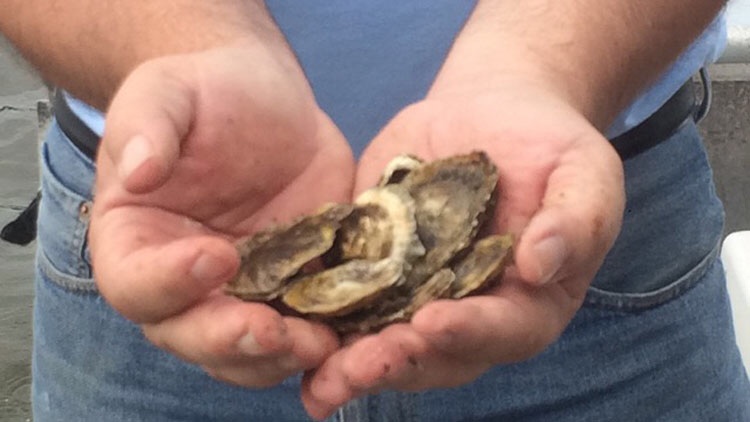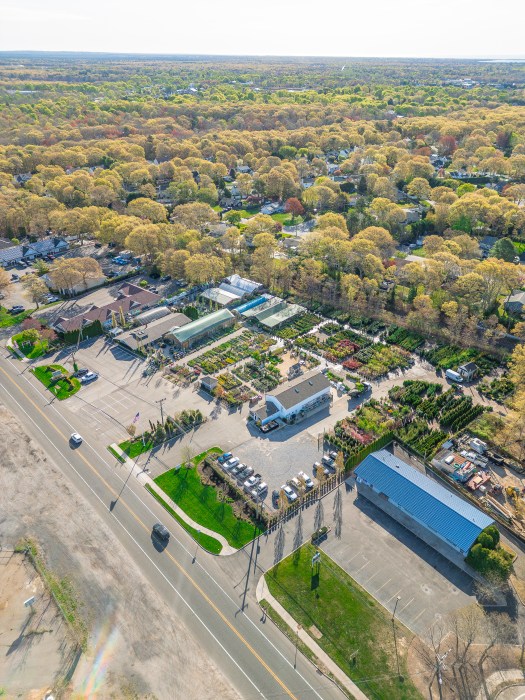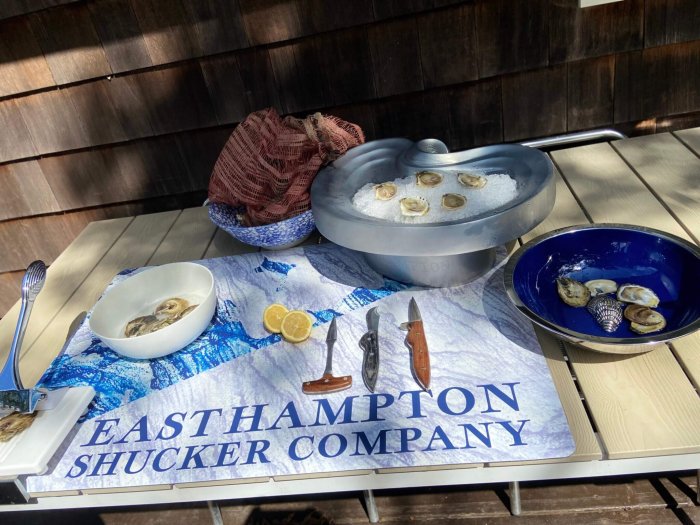Environmentalists and the Town of Brookhaven are joining forces to seed Moriches Bay with clams and oysters as well as plant eelgrass in an effort to improve the degraded local water quality.
The Moriches Bay Project Initiative, a program developed by a Westhampton Beach-based nonprofit, announced the plan along with town officials at a news conference Tuesday at the Forge River Marina in Mastic.
“We started this project a few years ago, and we look forward to this partnership to make the water here as beautiful as its surroundings,” said Aram Terchunian, a co-founder of the project along with Laura Fabrizio. “It is such a gorgeous area. It’s got such a rich heritage; there’s no reason that the water quality shouldn’t match.”
The initiative is one of many similar projects across Long Island that aim to simultaneously revive the shellfish industry and rid local bays of nitrogen pollution from cesspool runoffs that cause harmful algae blooms.
Thomas Carrano, the assistant waterways management supervisor for the Town of Brookhaven, estimated that each year the town grows two million oysters, one million clams and 70,000 scallops. Shellfish such as oysters and clams are beneficial to the environment due to their ability to filter water and reduce the levels of nitrogen in the water, which helps to prevent algae blooms.
“These animals are vitally important to the ecosystem of Great South Bay; they’re what we call ‘keystone species,’” Carrano said. “We need to restore the industry to restore the health of the bay, and to restore a fishery that is vitally important to the economics of the Town of Brookhaven. These partnerships with the not-for-profits have allowed us to expand our capabilities.”
Carrano explained that the oysters are put into floating cages in groups when they are “seeds,” or juvenile oysters. They remain in these cages until they’re fully grown, which takes about two years. Then they’re released so they can benefit the environment.
“Each oyster filters 50 gallons of water,” said Carrano, “and our goal is to create a self-sustaining oyster population in the bay so that we can restore the filtering capacity of the bay.”
So far the town has planted 20,000 oysters, but officials want to expand this number to 90,000 or higher.
Eelgrass also has many ecological benefits, such as stabilizing seafloor sediments and shorelines, cleaning coastal waters and providing habitat for a diversity of marine life.
Brookhaven Town Supervisor Ed Romaine has submitted a grant to fund the expansion of the Brookhaven oyster and clam-growing facilities. He also said the town might pass legislation in the coming months to limit the amount of nitrogen derived from human waste that could be dumped into the bay. Romaine did not provide specifics at this time but he indicated that this was an important step.
“This partnership is vital to the preservation of the water quality in the bay,” Romaine said. “Our waterways have been severely impacted over the years, and it is time to take action and clean them up before it’s too late.”






























